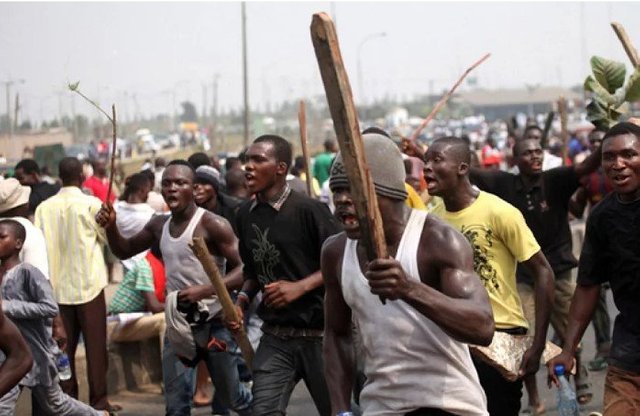MANAGING AND PREVENTING CONFLICT
For years, conflicts have affected life and property in Ghana. Many attempts have been made to resolve these conflicts but many still persist. These conflicts are affecting the development of individuals, families and the nation. It is important therefore to develop better ways of preventing and managing such situations.
- CONFLICT
Conflict is a disagreement among individuals or groups which affects peace and stability in the community.
2.CONFLICT PREVENTION
It is the process of identifying signals of conflict and encouraging people to work out their differences to avoid clashes.
- CONFLICT MANAGEMENT
Conflict management refers to the use of various initiatives and mechanisms to reduce tension during periods of conflict to facilitate resolution.
THE SOURCES OF CONFLICTS IN THE COMMUNITY
Location/siting a public facility: Inappropriate siting of public facilities often create conflict between residents of the area and the Town Council Department. The landfill site at Ogblogo in Accra is one major example. The stinks that emanates from the landfill creates nuisance to residents in the area. The people of the area vow to resist any attempt to dump further refuse at the site by the Accra Metropolitan Assembly
Ownership of land or property: The issue of land ownership has brought about conflict among citizens and their chiefs. When a piece of land is sold to two or more people at the same time, it creates confusion and conflict. People have engaged the services of land guards to protect their lands. The end result is clashes leading to bloodshed.
Unacceptable way of choosing leaders: Leadership crisis has also contributed to unceasing conflict in our society. Political parties, chiefs and corporate organizations fight over leadership. A section of the populace may want their preferred candidate to rule whereas the other side may disagree. This is another cause of conflict in society. The Anlo chieftaincy dispute where a policeman and several others lost their lives in November, 2007, is an example.
Ethnic and tribal differences: Ethnocentric sentiments can lead to tribal conflict. When people look down on others they treat them as unimportant. We must eschew tribalism and favouratism since it can breed hatred for one another.
Chieftaincy disputes: The selection and installation of chiefs is one major cause of conflict in Ghana. Some elders are influenced financially to violate the rules in favour of others. This creates disaffection, tension and division among the various clans. Political interference of the chieftaincy institution has also contributed to the unceasing chieftaincy in Ghana

WAYS TO MANAGE CONFLICT SITUATIONS IN THE COMMUNITY
Law enforcement: The government must equip the police service with the necessary logistics to enable them clamp down on law breakers. The courts must also ensure that strict punishment is meted out to recalcitrant citizens who create confusion in the community.
Litigation: It is the process where conflict is taken to the court for redress. After careful examination, judgment is passed which must be accepted by both parties.
Negotiation: Negotiation is discussions at which people try to agree on an issue. Parties involved in conflict must agree to negotiations to settle matters of concern to them.
Reconciliation: Reconciliation is making people become friends again after argument. There could be reconciliation committee set up to bring parties involved in conflict together. They must shake hands and forgive one another.
Arbitration: Arbitration is an out-of-court method of resolving conflict. In arbitration both parties to the dispute take the matter to a neutral person (arbitrator) to have the disagreement resolved